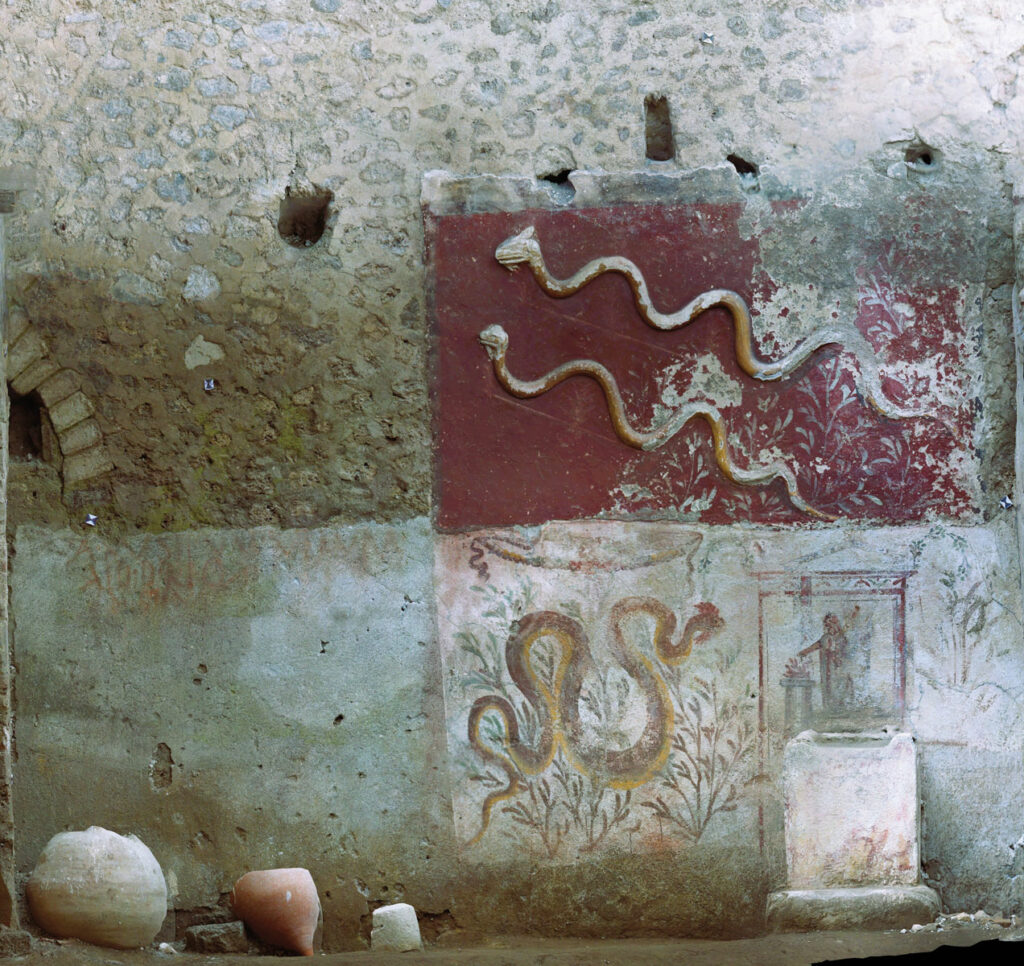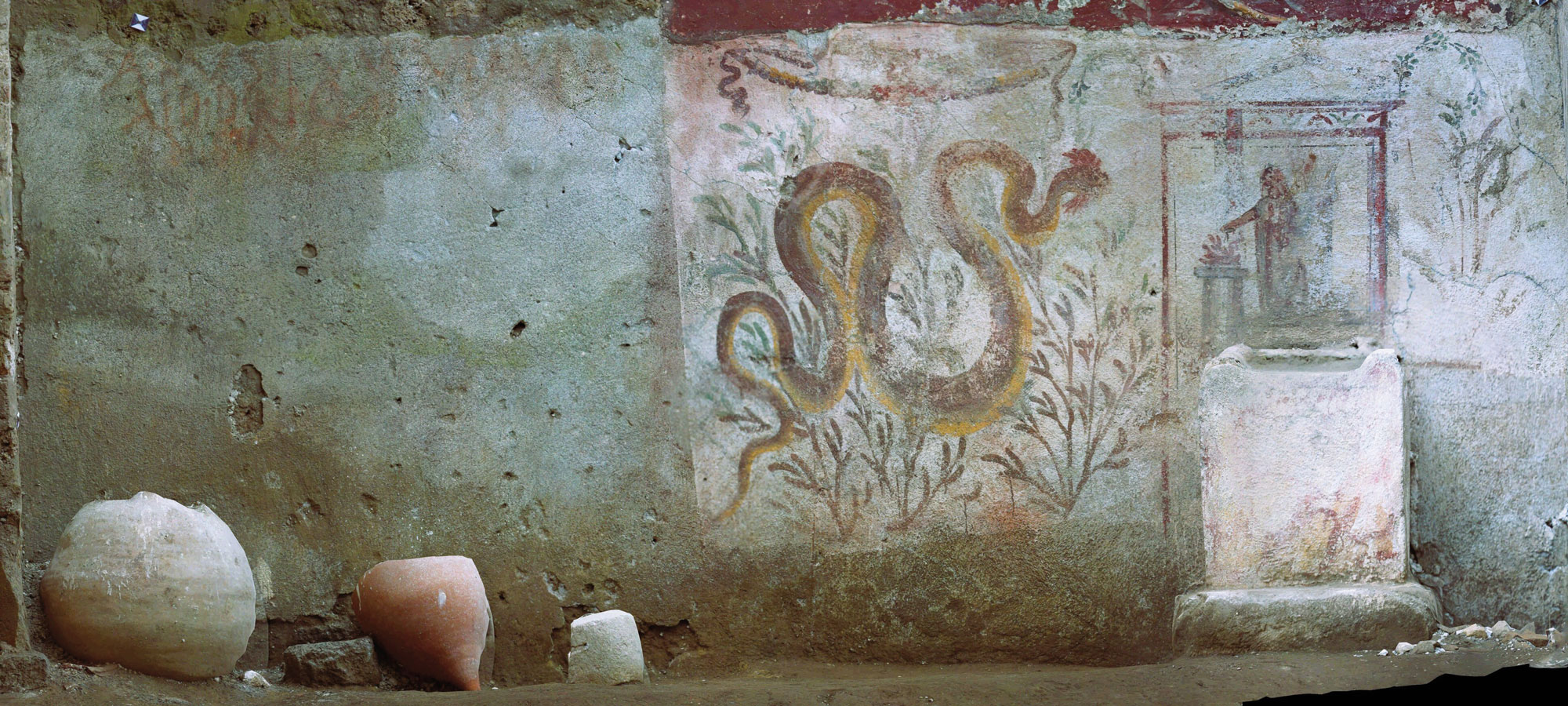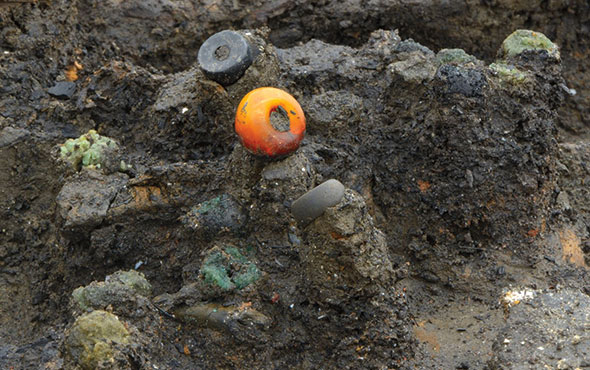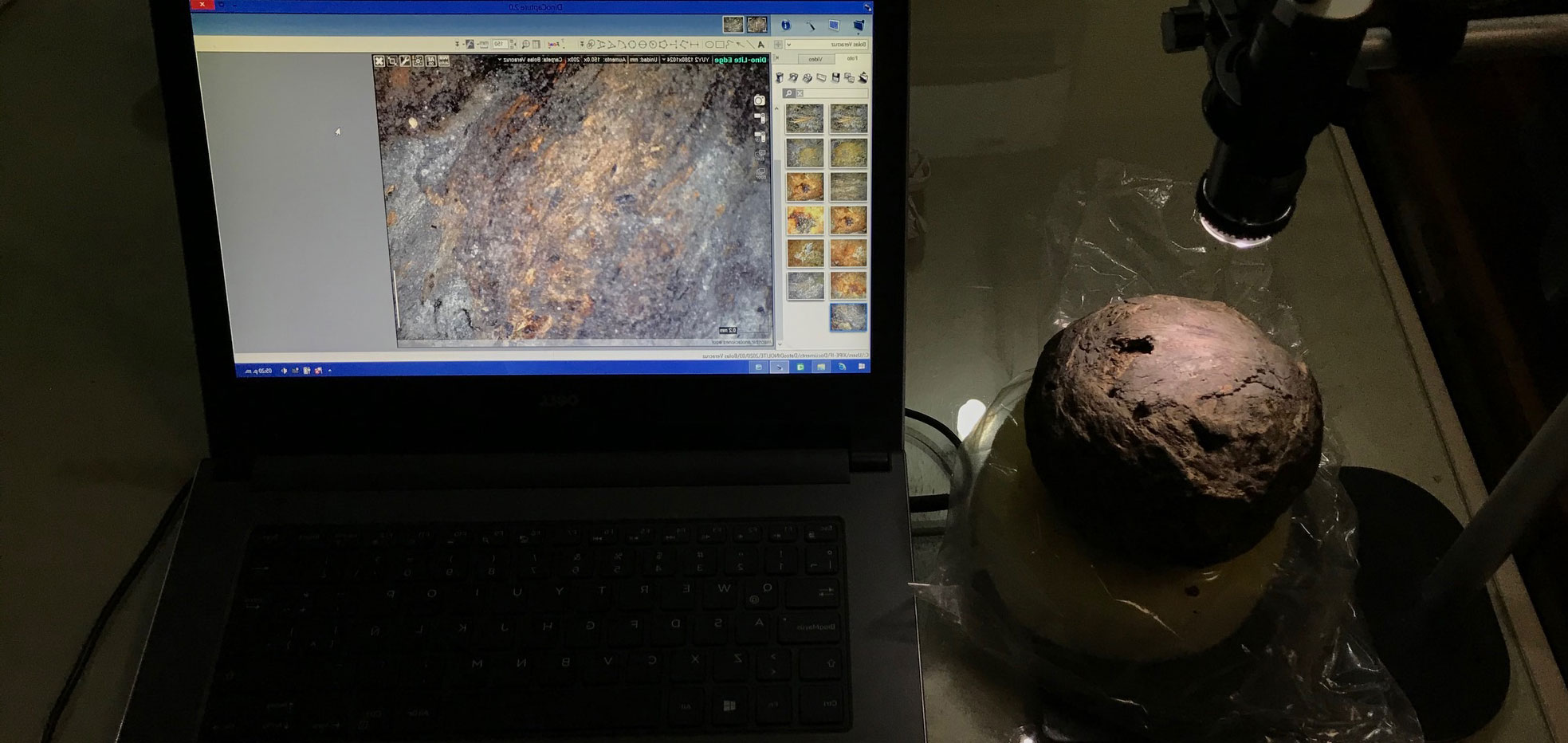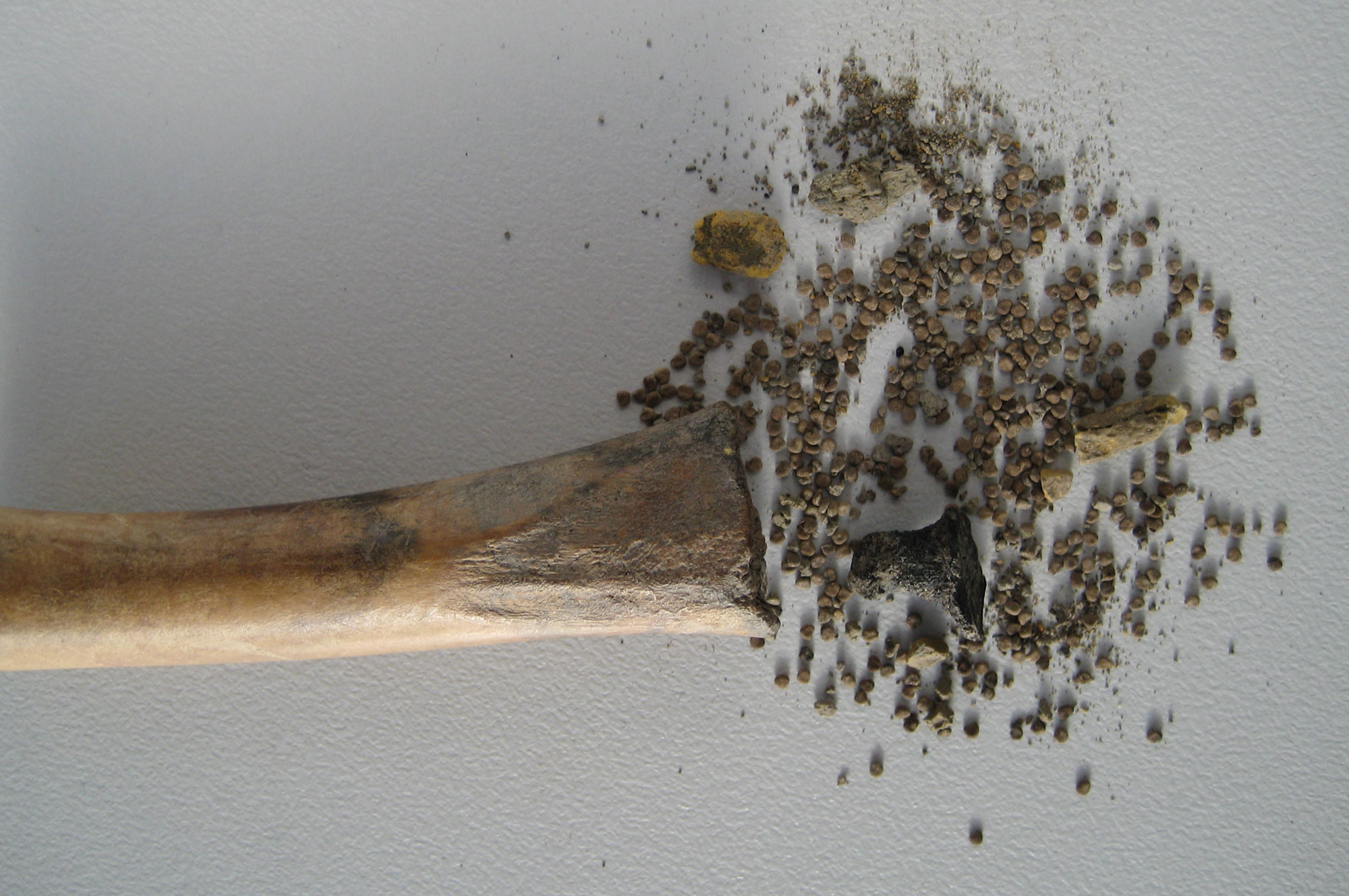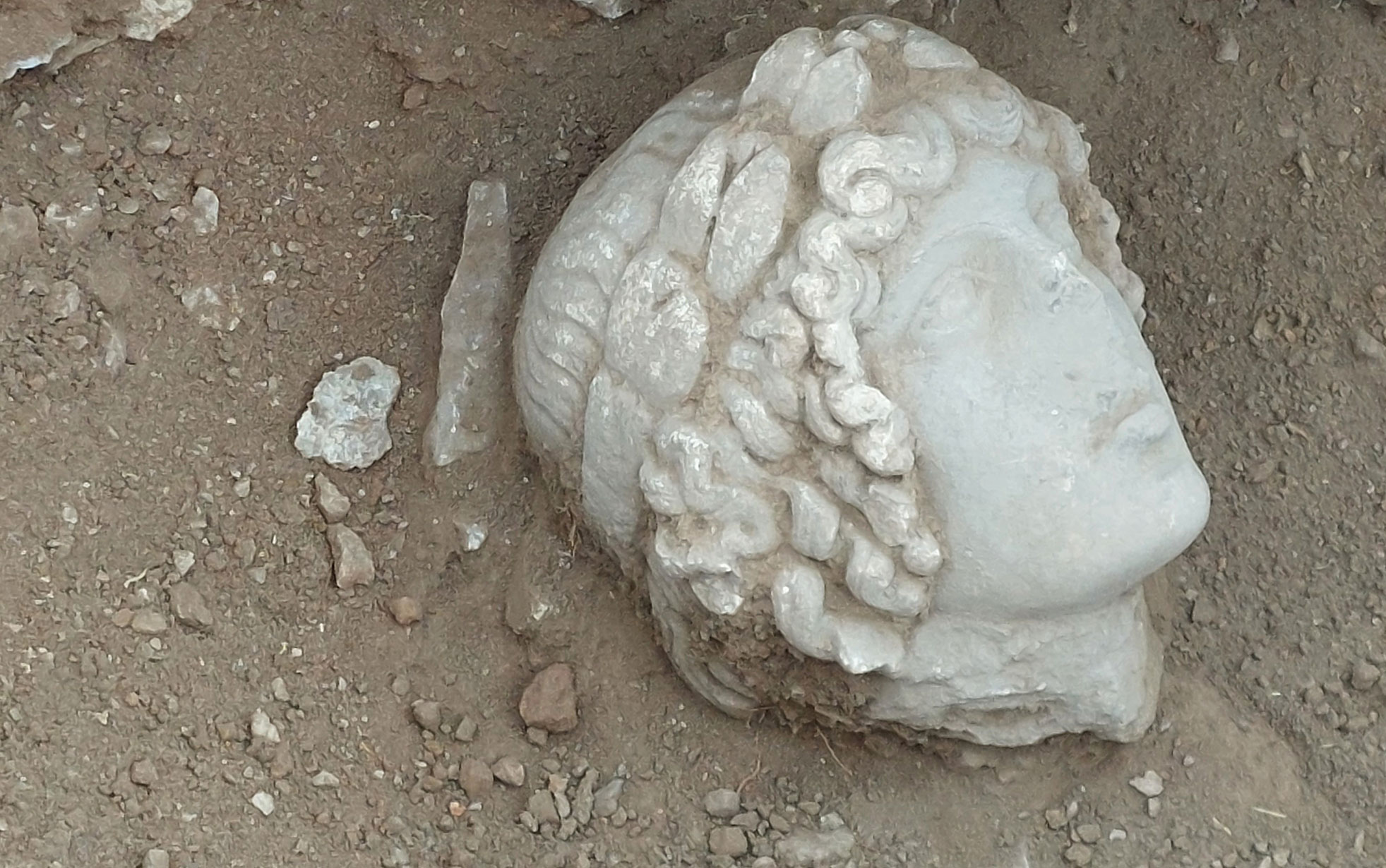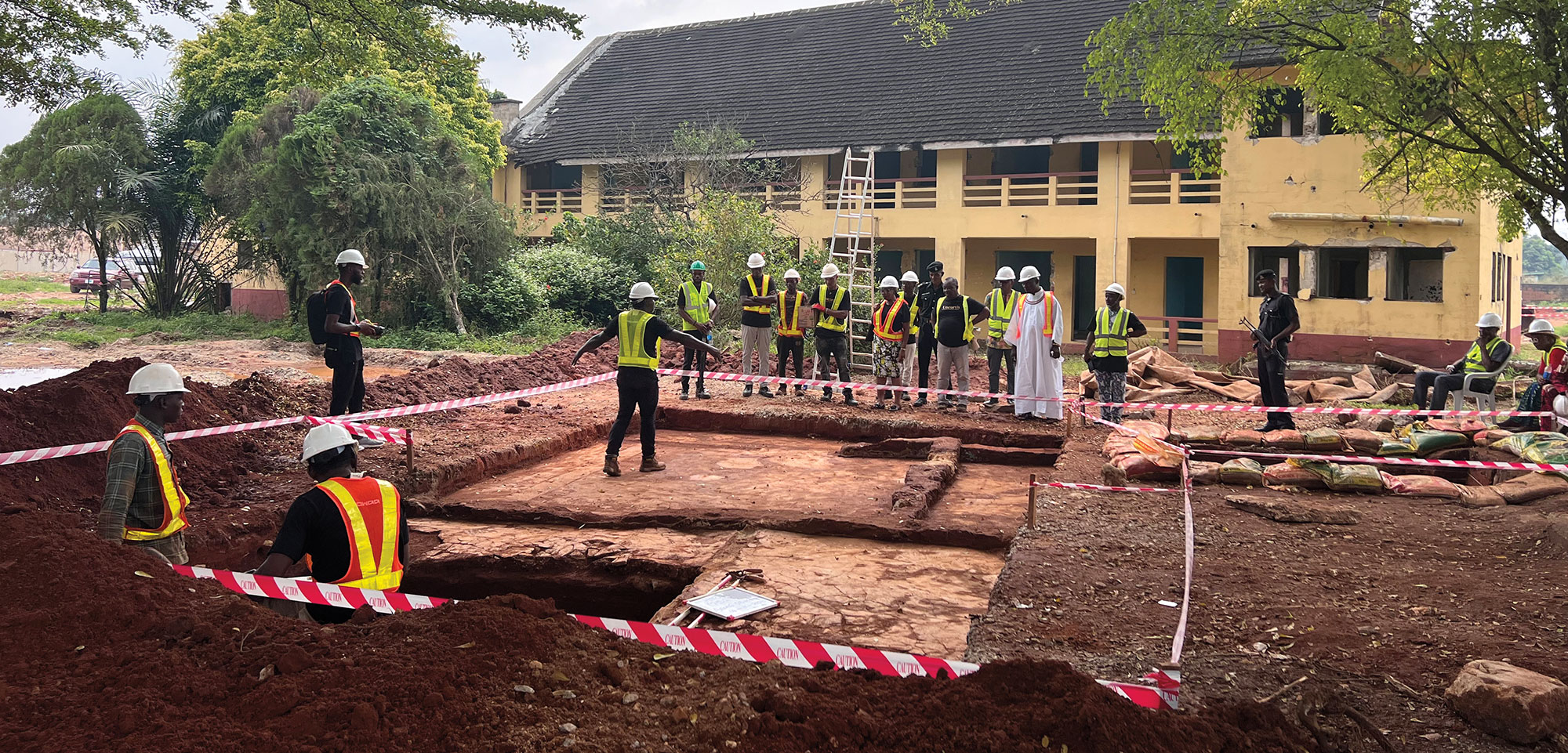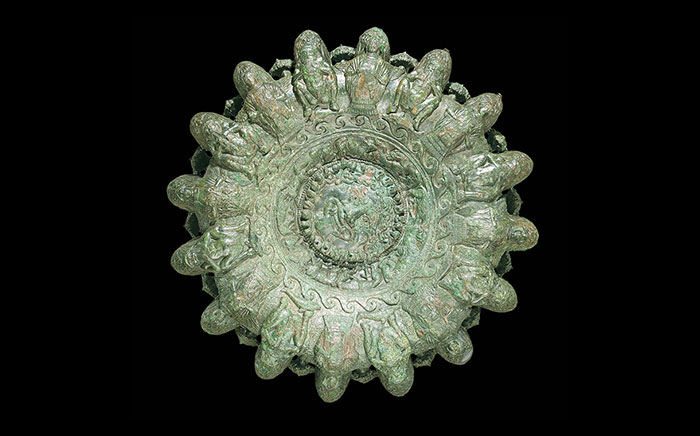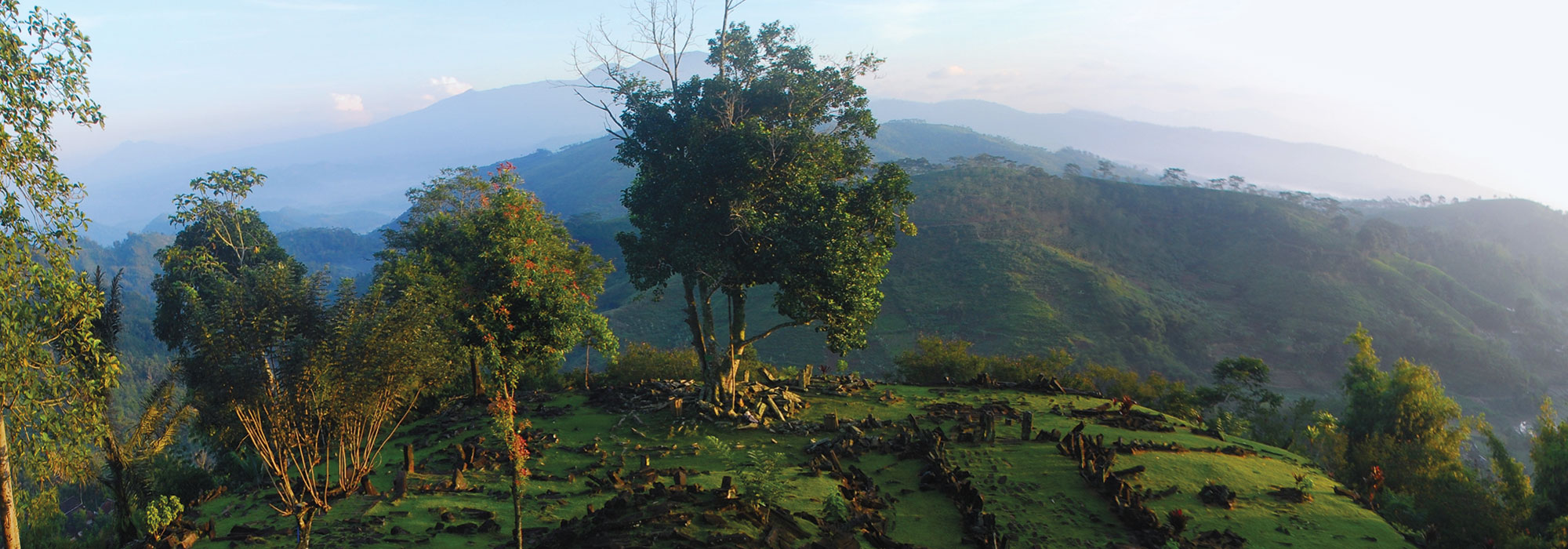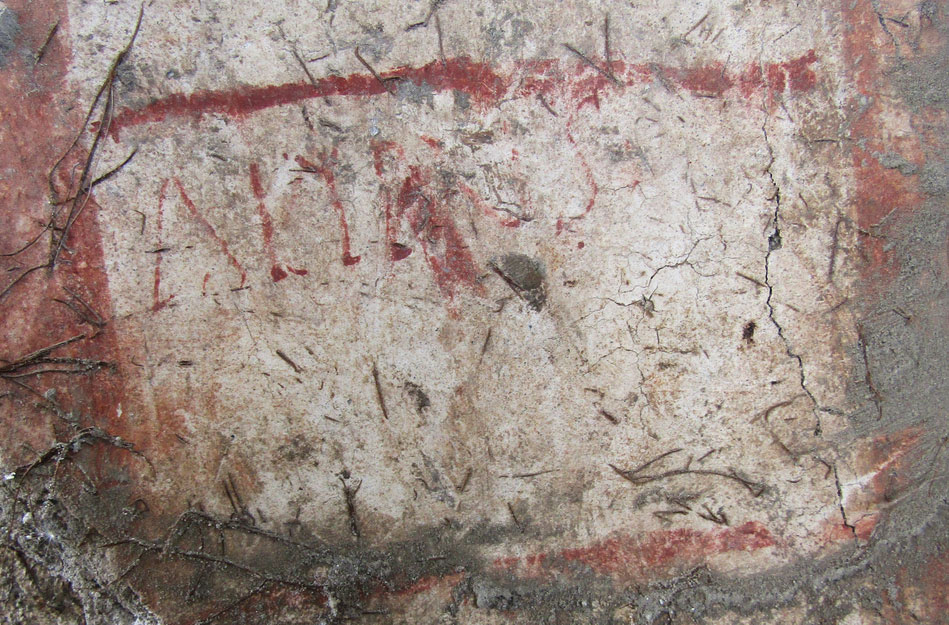
Many of the buildings along Pompeii’s streets are covered with painted messages extolling the virtues of candidates running for office nearly 2,000 years ago. “These graffiti played a similar role to our electoral posters, to get consensus and support candidates,” says classicist Maria Chiara Scappaticcio of the University of Naples Federico II. While these political slogans are commonly found on the exterior of buildings, maximizing their exposure to the voting public, new excavations in Pompeii’s Regio IX area have unearthed a property that had election propaganda in its interior. These dipinti appear on three walls of a room that also contains the residence’s lararium, or household altar, which is decorated with serpents. The political graffiti encouraged voters to elect a man named Aulus Rustius Verus for the office of aedile, a position responsible for public building and infrastructure.
Archaeologists believe the homeowner was a supporter of Verus’ campaign and may have hosted an event to back his candidacy. The property also had an attached bakery in which a millstone with Verus’ initials was found, suggesting that the shrewd politician may have been handing out bread in exchange for votes. It’s likely that Verus won the election, as other epigraphic evidence at the site indicates that he later served as one of Pompeii’s two duumvirs, the city’s highest political office.
